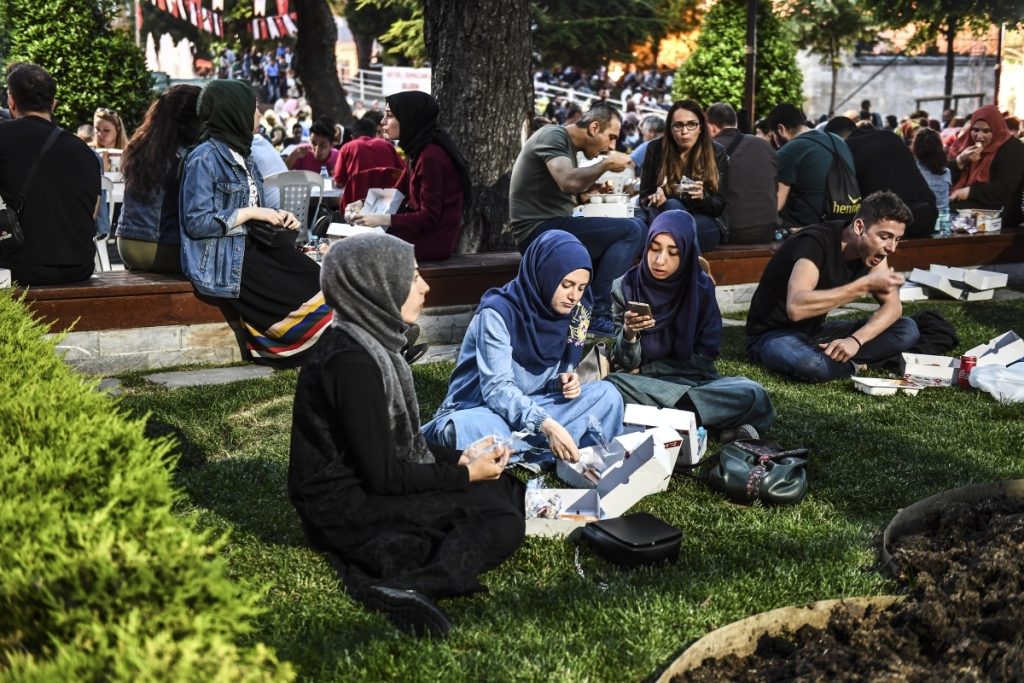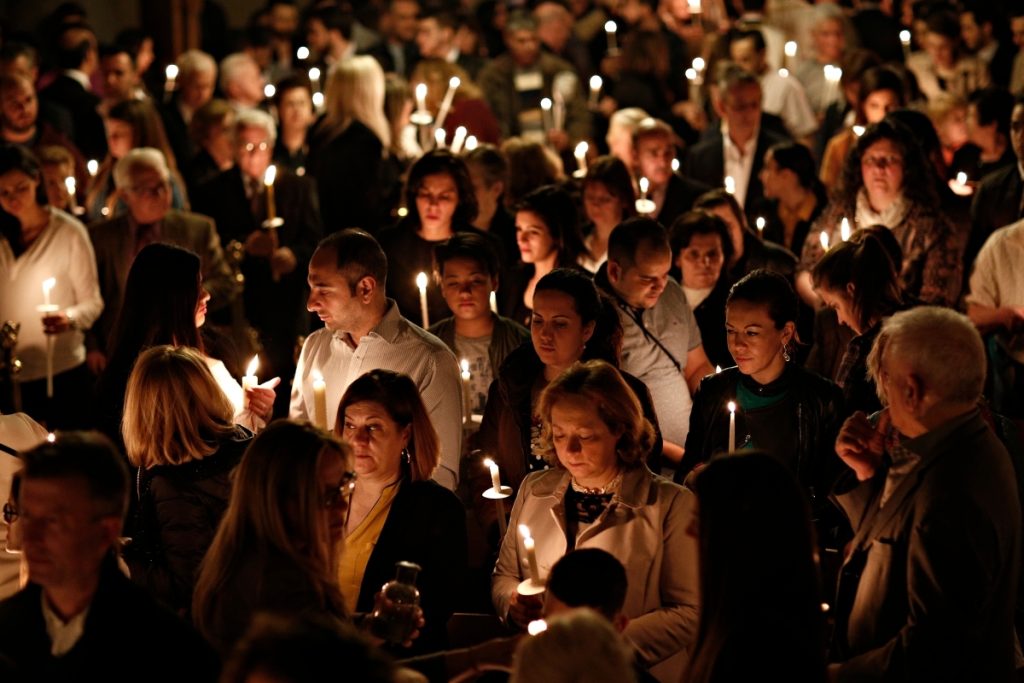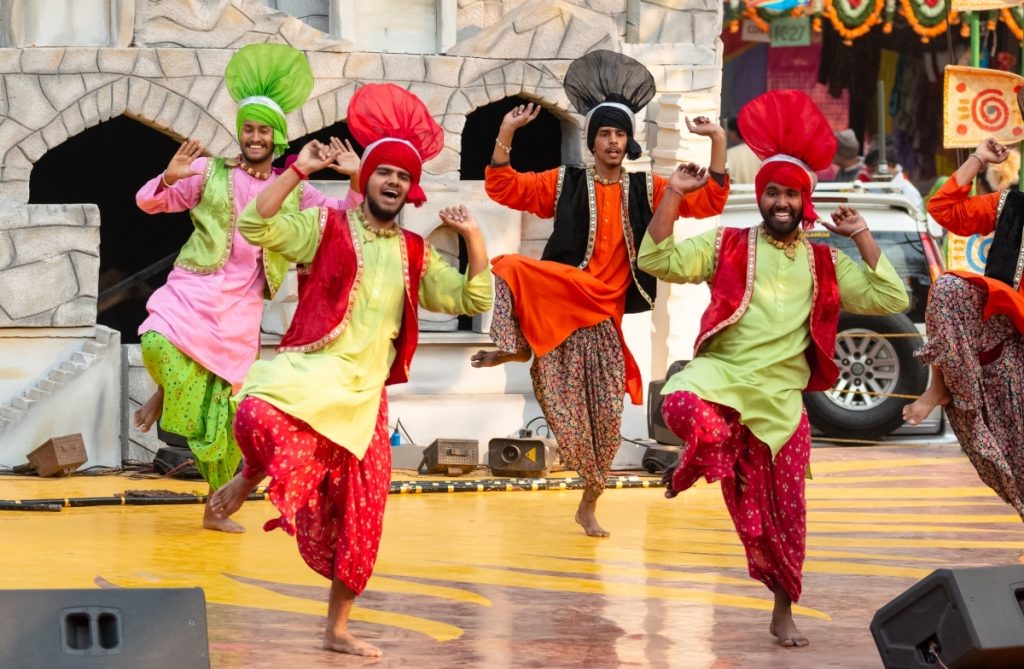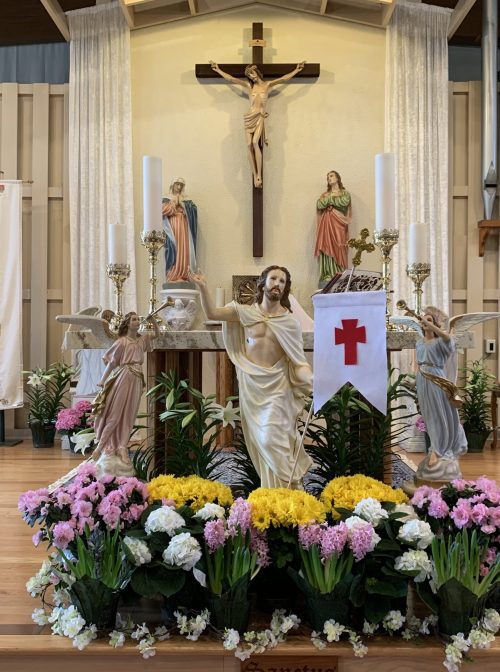For 2024, please reference our updated article, “What Religious Holidays are Happening this Spring?“
In 2023, many religious and cultural holidays are converging in the month of April. This is not the case every April because depending on their origins, these holidays follow different calendars including Lunar, Gregorian and Julian.
There are many reasons to pay attention to this convergence: K-12 educators need to be aware of student absences; industries that rely on workers from specific ethnic communities need to be aware of workers’ need for time off; businesses will want to be prepared for the foods, gifts, and items for celebration that may be in high demand; and neighbors will want to greet one another in respectful ways around these important holidays.
At Interfaith America, we know that people often leave religious, spiritual and philosophical identity out of their conversations unless explicitly invited to share. Here are a few reasons people say they’re reluctant to bring up religious observances: “I don’t want to appear foolish or ignorant by what I don’t know of my own tradition or someone else’s”; “I don’t want to offend someone”; “I don’t want people to make assumptions about me”; and “People just won’t understand me.”
We understand these fears, yet we know that religion is important to 61-91% of Americans. If each of us isn’t cultivating the capacity to engage religious diversity with respect, we’re not only leaving out an important aspect of people’s motivation and meaning making, but we’re also leaving it to others to shape the conversation.

April’s Religious, Cultural, and Secular Holidays in Brief
While this list is not exhaustive, we hope it gives you a place to start to grow your religious literacy, and learn about some of the holidays people are celebrating and honoring this month.
Sundown on March 22-April 20: Ramadan (Islam)
Ramadan, the holy lunar month for Muslims, is believed to be the month that the first verses of the Quran were revealed to Prophet Mohammed over 1,400 years ago. Ramadan is observed by fasting from just before the sunrise prayer, Fajr, until the sunset prayer, Maghrib. At the end of Ramadan, Muslims celebrate Eid-al-Fitr, which translated from Arabic means “the festival of breaking the fast.”
Join Our Ramadan Storytelling Campaign
March 30: Ram Navami (Hinduism)
Ram Navami celebrates the birth of Lord Ram, whose story is found in the sacred text Ramayana. Lord Ram is believed to be “an incarnation of both Lord Vishnu (god of preservation) and the embodiment of the Dharma (righteousness).” This holiday is celebrated with designated prayers, giving to charity, community meals and retellings of Lord Ram’s story.
April 1: Lazarus Sunday (Orthodox Christianity)
In Orthodox Christian communities, Lazarus Sunday commemorates Jesus’ resurrective healing of his friend Lazarus, as told in the New Testament. According to the Orthodox Church in America, this holiday is “the only time in the entire Church Year that the resurrectional service of Sunday is celebrated on another day. At the liturgy of Lazarus Saturday, the Church glorifies Christ as ‘the Resurrection and the Life’ who, by raising Lazarus, has confirmed the universal resurrection of mankind even before His own suffering and death.”

April 2: Palm Sunday (Christianity)
For Catholics and Protestants, Palm Sunday marks the beginning of Holy Week – a sacred period for Christians to reflect on the last days of Jesus’ life. Drawing upon the events in the Gospels of the New Testament, Palm Sunday is the celebration of the day Jesus entered the city of Jerusalem and was greeted by a large crowd waving palm branches. The story draws upon themes of peace, triumph, and wonder.
April 4: Mahavir Jayanti (Jainism)
Mahavir Jayanti is the celebration of the birth of Tirthankara Mahavira, who was the 24th and last Jain pandit. Mahavira was born into nobility but renounced that way of life to pursue enlightenment. Mahavira taught ahimsa (non-violence), satya (truth), asteya (non-stealing), brahmacharya (chastity), and aparigraha (non-attachment). Jains who celebrate Mahavir Jayanti may visit his temples, read sacred texts, and ask for his blessings.
Sundown on April 5-13: Passover/Pesach (Judaism)
Passover, or Pesach in Hebrew, is the eight-day festival celebrating the Israelites’ journey from slavery in Egypt to freedom. In America, most American Jews will observe Passover with a seder on the first and second nights of the festival. The seder is a meal, which includes a ritualized menu of foods, reading of the Exodus story, and many other rituals.

April 6: Hanuman Jayanti (Hinduism)
Hanuman Jayanti celebrates Lord Hanuman, a god who is revered for his selflessness, victories against evil, and providing safety to those in need in the Ramayana. On this day, Hindus may honor Lord Hanuman by visiting temples, making religious offerings, and reciting the devotional hymn, Hanuman Chaslisa.
Suggested greetings on this day are, “May Lord Hanuman shower his blessings on you and your family” or “Happy Hanuman Jayanti!”
April 6: Holy Thursday (Christianity)
Also referred to as “Maundy Thursday,” Holy Thursday commemorates the Last Supper of Jesus as told in the New Testament. In this story, Jesus washes the feet of his disciples as a gesture of humility, service, and love. Holy Thursday is a time to reflect on Jesus’ devotion to loving the people around him and serving the poor.
April 7: Good Friday (Christianity)
For Christians, Good Friday is the commemoration of the day Jesus was crucified. On Good Friday, many Christians will reimagine the Stations of the Cross by reenacting the Jesus’ journey on the Via Dolorosa through Jerusalem to the site of crucifixion. The suffering of Jesus is often used an illustration for the suffering in our world today.
April 9: Easter (Christianity) and April 16 (Orthodox Christianity)
Easter is the celebration of Jesus’s resurrection from the grave, three days after his crucifixion. Across America, churches will celebrate this sacred day with the blessing of Easter candles, baptisms, sunrise services, and celebrations.
April 13-14: Vaisakhi (Sikhism)
Vaisakhi is the start of Vaisakh, the second month in the Sikh calendar. It celebrates the founding of the Sikh initiation ceremony, the Amrit Sanchar, by the tenth Sikh Guru, Guru Gobind Singh Ji in 1699. Sikhs who are initiated become members of the Khalsa – a community of caste-less equals, blessed with articles of faith that give them a distinct and unique identity. The story of Vaisakhi for Sikhs is one of commitment, rebirth, renewal and kindling a connection with God.

April 14: Holy Friday (Orthodox Christianity)
Orthodox Christianity adheres to the Julian calendar, so Holy Friday is the day for the Orthodox church to commemorate Jesus’ death on the cross.
April 17: Yom HaShoah (Judaism)
Yom HaShoah is the Jewish Day of Remembrance of the Holocaust, and it is observed by Jewish communities worldwide. American communities hold remembrance in a variety of ways including, but not limited to educational programming, talks with Holocaust survivors, reading the names of victims, or with songs and readings.
April 21-May 2: Ridván (Baha’i)
Ridván is a twelve-day festival that commemorates the days Baha’u’llah, the founder of the Baha’i faith, spent at the Tigris River in modern-day Baghdad, Iraq.
April 23: St. George’s Day (Catholicism and Orthodox Christianity)
During the Diocletian persecution of Christians in the Roman Empire in 303 CE, George the Great publicly denounced Emperor Diocletian, and subsequently endured horrendous torture. His bravery and martyrdom are celebrated by both the Catholic and Orthodox churches.
April 25: St. Mark’s Day (Catholicism and Orthodox Christianity)
Saint Mark, one of the Four Apostles and traditionally viewed as the author of the gospel of Mark, was an important early church evangelist. He is venerated in both the Catholic and Orthodox traditions, with both celebrating St. Mark’s feast day on April 25.




